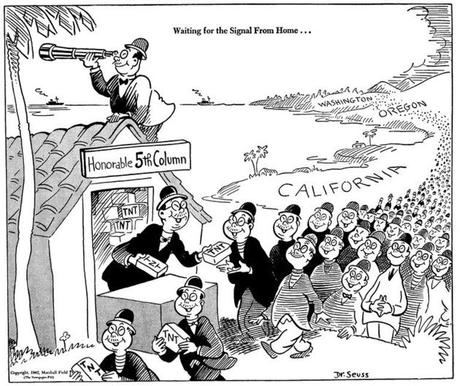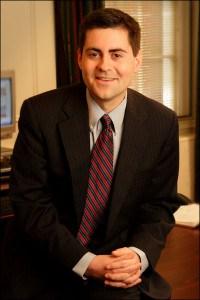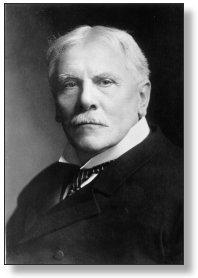By Alan Bean
The Syrian refugee crisis is shining a spotlight on the obvious: American Christians disagree on practically everything. There is no shared moral vision.
This is strange when you consider the Christmas story. Yes, I know, there isn’t just one Christmas story in the Gospels. But the same message is woven into all these texts.
In his shepherds-abiding-in-the-field story, Luke tells us three times that the babe who would be king was wrapped in swaddling clothes and lying in a feed trough. Why? Because there was no room for them in the inn.
Jesus was a refugee.
Or consider Matthew’s portrait of the Holy Family fleeing to Egypt, a step ahead of the homicidal King Herod. Mary, Joseph and the babe were refugees.
John’s Gospel leaves nothing to the imagination.
He was in the world, and the world was made through him,
yet the world knew him not.
He came to his own home,
and his own people received him not.
Jesus was an outcast and an exile. Jesus was a refugee.
So why does Franklin Graham, heir to the kingdom called The Billy Graham Evangelistic Association, regards Syrian refugees with fear and loathing.
“Our nation’s security is at stake. The future of our children and grandchildren is at stake. We should not allow any political or religious group who want to destroy us and our way of life to immigrate to this country.”
 Franklin Graham
Franklin GrahamFive months before Donald Trump floated the God-forsaken notion, Graham the younger was insisting that all Muslims must be barred from immigrating to America.
He said they should be treated like the Japanese in World War II.
Muslims who come to our shores, Graham said, have the “potential to be radicalized” and are likely to participate in “killing to honor their religion and Muhammad.”
These comments were sparked by the murder of four Marines in Chattanooga, and the recent massacres in Paris and San Bernardino, obviously, have added more fuel to the anti-Muslim bonfire.
Graham was likely agreeing with General Wesley Clark and Roanoke mayor, David Bowers (both loyal Democrats), who suggested at the time that “radicalized” Muslims living in the United States should be rounded up and placed in internment camps “for the duration of the conflict.”
But how are we to assess which Muslims are “radicalized” and which are not?
Franklin Graham believes that no Muslims can be trusted because they all follow an evil, wicked and violent religion. The solution, he appears to suggest, is to refuse to let these people into the country and, if they’re already here, lock them all up forever (since the war on terror is a war without end).
Americans were so intimidated by the Japanese in the 1940s that even left-leaning individuals like President Roosevelt and the irenic Dr. Seuss couldn’t, or didn’t want to, tell the difference between a faithful citizen and a potential terrorist.

In the wrong hands, this inability to distinguish freedom-loving Muslims from members of the ISIS death cult that leads to disastrous foreign policy proscriptions.
So why are so many preachers and religious professionals beating the anti-immigrant drum?
 Robert Jeffress
Robert JeffressIn a bizarre display of bad judgment, Robert Jeffress, pastor of First Baptist Church, Dallas, and Kenneth Copeland, the Fort Worth-based dean of the Prosperity Gospel preachers, recently headed down to the American Airlines Center in Dallas to lay hands on Donald Trump, essentially endorsing his presidential run.
Christian professionals like Jeffress, Copeland and Franklin are dangerously close to declaring war on Islam.
Jerry Falwell, Jr. made headlines by encouraging the students at Liberty University to defend their alma mater from the Muslim hoard by arming themselves to the teeth. “If more good people had concealed-carry permits,” he reasoned, “then we could end those Muslims before they walked in and killed them.”
Falwell later explained that his reference to “those Muslims” referred only to terrorists, but his loose language sounds like a call for preemptive action. What if the handful of Muslim students on campus (supposing there be such) decided to attend class with pistols strapped to their hips? Is Falwell telling the Christian majority to mow them down on sight before the infidel can shoot first?
If not, what does he mean?
 Larycia Hawkins
Larycia HawkinsLast week, Larycia Hawkins, an associate professor of political science at Wheaton College, was placed on administrative leave for suggesting that Christians and Muslims worship the same God. Dr. Hawkins wore a hijab, a traditional headscarf worn by many Muslim women, as a gesture of solidarity.
I stand in religious solidarity with Muslims because they, like me, a Christian, are people of the book. And as Pope Francis stated last week, we worship the same God.
Wheaton officials insist that Hawkins’ suspension was in response to her “we worship the same God” remark and has nothing to do with her decision to wear the hijab.
Evangelicals of all stripes are standing foursquare with Wheaton. Christians worship a triune God and regard Jesus as the divine Son of God, they point out, while Muslims worship but one God and, although they regard Jesus as a prophet, the very idea of full-blown incarnation is abhorrent to the orthodox Muslim.
These distinctions are valid, so far as they go, but the same theological disagreement separates Christians and Jews and few American evangelicals would deny that Jews and Christians worship the same God.
The real difference is that Jews and Christians reverence the Hebrew Scriptures while Muslims do not. Orthodox Jews claim that Christians abuse and misinterpret these texts. The Jew-Christian and Muslim-Christian divides are equally profound, and yet American Christians (for the last half century at least) have emphasized their commonality with Judaism and their differences with Islam.
Larycia Hawkins says our common humanity trumps our differences.
Russell Moore
Russell Moore, the moral voice of the Southern Baptist Convention, is the only dissenting voice in the evangelical camp. Moore is appalled by Donald Trump, a man who makes his living off casinos that prey on the poor and discards wives like last years Lexus.
Moore makes a clean distinction between Islam and ISIS. If we don’t protect the religious rights of Muslims, he says, the religious rights of Christians are jeopardized as well.
But even Moore has criticized Barack Obama for underestimating the threat posed by ISIS. And, like Robert Jeffress and the rest of the preachers swooning over Donald Trump, Moore believes that the non-violent philosophy of Jesus applies to individuals, not governments. Christians must love their enemies, even ISIS, but we should also endorse Toby Keith’s prayer that the American military will soon “light up their world like the Fourth of July”.
The logic of the kingdom, most evangelicals believe, breaks down in the face of organized evil.
Yes, there is a logic to Jesus’ teaching. The Gospel stories, the parables, the sermons and even the apocalyptic portions of the Gospel are rooted in a compelling vision.
The parable of the Good Samaritan intentionally casts a member of the most despised out group of his day as a hero.
Jesus embraced the most flagrant sinners of his world (most notably prostitutes and tax collectors) while deriding the self-righteous hypocrisy of “those who need no repentance”.
The messianic banquet (a prominent feature in the Gospels) is open to all. The only outcasts (in good elder brother fashion) cast themselves into the outer darkness because, well, they shouldn’t have to hang with those people.
Jesus taught, and actively demonstrated, a preferential passion for children, immigrants, widows, the elderly, women (especially prostitutes and widows), and people suffering from the full range of physical and mental ailments.
These were his people and he was roundly and routinely criticized for hanging with them. It was counter-intuitive (then as now). It was naive. It was potentially disastrous. It was impractical.
All of this seems perfectly obvious to non-evangelicals. Even Friedrich Nietzsche and Ayn Rand knew what Jesus was about and despised him for it. So why do evangelical preachers refuse to admit the obvious?
It’s complicated.
From the moment Constantine the Great made Christianity the official religion of the Holy Roman Empire in the early 4th century CE, the kingdom teaching of Jesus has been an embarrassment.
Prior to Constantine, Christians were barred from serving in the Roman military. How could you love your enemy while trying to run a spear through him? But with Christendom rapidly taking shape, the ban on Christian participation in the military was lifted. Ultimately, only Christians could defend the empire, even if this required the mass baptism of Germanic and Frankish tribes who had no idea who Jesus was or what he taught.
Augustine of Hippo helped things along with a “just war” theory malleable enough to justify virtually any conflict.
While monks and nuns organized their common life around the teaching of Jesus, Christians in the “real world” took their moral guidance from the Old Testament (especially when they were threatened by ISIS-like enemies.
The Protestant Reformation changed little. Martin Luther, desperate for the support and protection of German princes, devised a Two Kingdoms theology that ceded political affairs, including officially sanctioned violence, to secular princes.
The Radical (or Anabaptist) wing of the Protestant Reformation interpreted the words of Jesus with stark literalism and paid for it with their lives. The only thing Roman Catholics, Calvinists and Lutherans could agree on was that Anabaptists should be killed or driven into exile.
The kingdom teaching of Jesus was particularly problematic with the advent of European imperialism, forced labor and race-based slavery. How could you regard Africans as social and intellectual inferiors suitable only for menial labor and claim to be following Jesus?
Either you renounced Jesus (hardly an option in a Christian nation) or you found clever ways to shut him up. American evangelicals, particularly those in the South, took the latter course and used a “high view” of biblical authority to justify it.
American-style dispensationalism became the default position of conservative Protestants because it appeared to reconcile the undeniable differences in tone, style and teaching within the Bible with the idea that every word sprang directly from the lips of God (and therefore Jesus).
C.I. Scofield
There are two plans of salvation in the scriptures, teachers like C. I. Scofield and his disciple Lewis Sperry Chafer insisted; one Jewish, the other Christian. One “plan of salvation” is all legalism, the other is all grace. One is Jewish; the other is Christian, and the two must never be confused or intertwined.
Now, here’s the kicker. Scofield and Chafer (the founding president of Dallas Theological Seminary) believed that the kingdom Jesus offered Israel was rooted in Old Testament legalism. As such, Jesus’ kingdom teaching was the antithesis of grace. Only when Israel refused this offer of the kingdom did Jesus (at the Last Supper, no less) create the Church.
If you want to understand Christianity, old school dispensationalists taught, listen to Paul, not Jesus. The farewell discourse in John’s Gospel stands as an important exception because Jesus had already shifted gears, but the Sermon on the Mount, including the Lord’s prayer, and virtually everything Jesus had to say about violence, money, the poor, social outcasts, children, and the victims of physical and mental illness did not apply to Christians. It might be useful in the same sense that the law of Moses was useful, but it had no bearing on the church.
Lewis Sperry Chafer
Scofield and Chafer were roundly criticized by their evangelical contemporaries for suggesting that the Sermon on the Mount and the Lord’s Prayer were sub-Christian, but hardcore dispensationalists refused to back down. Ultimately, they won the day. The fight was of little moment. Few evangelicals, dispensational or otherwise, centered their theology on the kingdom teaching of Jesus anyway. Scofield and Chafer were simply making this rejection explicit and theologically necessary.
If you have read the books of Hal Lindsey (The Late, Great Planet Earth, etc.) thrilled to Time LaHaye’s Left Behind sagas, or read the sermons of Dwight L. Moody, Billy Sunday, John R. Rice, Bob Jones, Jerry Falwell (and his son), Billy Graham (and his son), or been influenced by Southern Baptist preachers like W.A. Criswell and Robert Jeffress, you have been drinking from dispensational waters.
You will be relieved to learn that Dallas Theological Seminary, the academic champion of American dispensationalism, no longer teaches that the teaching of Jesus in the Synoptic Gospels has no direct application to Christians and the Church? In recent decades, dispensational academicians have been backing away from the most heretical teaching of the school’s founding fathers, and that’s a very good thing.
Unfortunately, hardly anyone is paying attention.
The “Progressive Dispensationalism” taught at Dallas Seminary today bears little resemblance to the Scofield-Chafer variant. Scholars like Craig Blaising and Darrell Bock believe in the pre-tribulation rapture of the Church and they still anticipate a thousand-year millenium, but they aren’t setting any dates and the radical distinction between Israel and the Church is rejected in the strongest terms.
Progressive Dispensationalism takes the kingdom teaching of Jesus very seriously (although they rarely get into the potentially controversial particulars like non-violence and enemy-love).
Which brings us back to Russell Moore, one of the few prominent evangelicals to denounce Donald Trump while affirming the full citizenship of American Muslims and distinguishing ISIS from mainstream Islam.
Moore, like most of the Baptist leaders emerging from Southern Baptist Theological Seminary in the past twenty years, is a Reformed Christian (read “Calvinist”), but he is excited by the promise of Progressive Dispensationalism. Moore hopes that the longstanding theological divide between Reformed and Dispensational evangelicals can be resolved. If the warring factions can embrace the kingdom teaching of Jesus, he believes, a unified movement could forge a credible theology of evangelical social action.
Moore is embarrassed by the the hard-hearted and self-glorifying blather of parachurch and megachurch leaders like Jeffress, Falwell and Graham the younger, Pat Robertson and prosperity preachers like Kenneth Copeland. But these men (they are almost all men) have carved out niche markets that make religion pay handsomely. They have little interest in a unified evangelical movement; they’re all about increasing market share.
In other words, the self-appointed poobahs of popular evangelicalism are marketing wizards. Progressive Dispensationalism is theologically and biblically preferable to Old School date-setting pop eschatology, but it isn’t nearly as much fun. Who wants to wrestle with the ethics of Jesus when you could be waiting for the trumpet to sound this very year (or by the end of the decade at the very least)?
Hal Lindsey kept his brand alive throughout the 1980s by insisting that the rapture was guaranteed to come before 1990. He was wrong, of course, but true believers had so much fun waiting in hushed excitement that they ponied up for the Left Behind a few years later as if the biblical prophecy scam hadn’t been exposed as a fraud.
This doesn’t mean that Russell Moore’s crusade to unify, purify and reform American evangelicalism isn’t worth the effort. A modest cadre of kingdom-minded evangelicals could create it’s own niche market. Eventually, the mainstream media might realize that some evangelicals aren’t science-denying, Ayn Rand-adoring bigots.
But that is as far as the evangelical reform movement will get. The future of American religion, right, left and radical, will be marked by mind-numbing diversity. In this brave, new, postmodern world, no single movement or message will attain anything like normative status.
Christianity, even in the American South, will soon be an option that most Americans ignore. Christendom is over. And that ain’t all bad. In fact, if you care about Jesus, it could be wonderful.
Is it possible that American Christianity might someday give the kingdom teaching of Jesus a central place in our theology and mission?
It’s hard to say. There is little discernible appetite within mainstream Christianity for the radical rigor of the biblical Jesus. Enemy-love, radical forgiveness, the condemnation of greed, the exaltation of the outcast, the dethroning of power and celebrity, and compassion for the despised, the infidel and the outcast. How can ideas these counter-intuitive principles find a hearing in the religious marketplace of America?
Well, I believe there is a market for this message. Legions of disaffected millennials are asking why Christians don’t sound like Christ. They wish we did. They want us to. Very badly.
Millennials are looking for a guiding philosophy that refuses, on principle, to divide the world into a Manichean, us-them dualism.
The teaching of Jesus satisfies this hunger. Tolerance isn’t enough, Jesus says, we must love our enemies. Our spiritual survival demands that we protect the weak and bind up the brokenhearted. When beaten and abused we must respond with blessing . . . or we will perish.
To the Donald Trumps of our world, Jesus sounds like a cosmic sissy. But war weary Millennials (some of them, anyway) might be convinced that Jesus (the real Jesus) can light the way forward.
But it won’t happen without a new kind of church and a new kind of evangelism. Saving souls for heaven is no longer sufficient; we must to learn how to live together in this world. The fields are white unto harvest, but the laborers are pitifully few.
Kingdom Christians will always be a small minority, and that’s okay. So long as the kingdom vision Jesus sponsors remains a viable option, a recognizable “thing”, we’ll be all right.
When Christian preachers line up behind an Antichristian jester like Donald Trump, we are entering a new dark age. But the light still shines in the darkness and the darkness will never put it out.
 Russell Moore
Russell Moore
 C.I. Scofield
C.I. Scofield
 Lewis Sperry Chafer
Lewis Sperry Chafer
